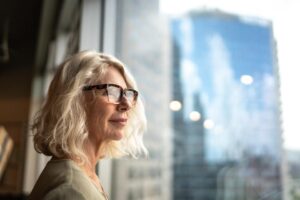
Rituals
By Jo Strausz Rosen
What are the rituals we create to commemorate the important milestones in our lives?
Birthdays, Bris and naming ceremonies, engagements, weddings, funerals… the first days of anything… Photographs capture these moments in time we want to remember always. When we think of graduation, we walk up on stage, collect our diplomas, shake hands with our professors and return to our seats, filled with pride, newly matriculated and ready to take on the world, hoping we will unlock new doors and begin new paths. Psychologist, Dr. Betsy Stone said, “Graduation is celebratory, but also an unmooring ritual – a mourning ritual.” In all the celebratory moments, we face our fears about what comes next. We don’t always know.
We go through various stages of grieving our youth, grieving what we know we will lose as we change… grieving our past as we begin to realize tomorrow… the future is ours to see, whatever it will be. We come up with self-soothing phrases – Let go… Let Gd… Trust in the process….
We face changes in independence, health, and death. Some of us go through shock and denial repeating to ourselves, “That’s not possible, this can’t be…this isn’t real.” We experience numbness. Some of us might seek therapy. Our self-protective egos work to keep us from feeling the depth and extremity of the loss of our youth.
We might feel “crazy” until we ground ourselves in the new reality – facing next steps – head on. Some tell us to put one foot in front of the other and keep walking. As soon as we take on responsibilities of being “older,” and throughout some joy filled rituals, we experience extraordinary pain. The balance of bittersweetness.
Milestones change us. Dr. Stone informs us that we can feel a full out-of-body experience, with symptoms of illness and suffering and even what she refers to as “grief brain.” It takes some people longer than others to move forward with their lives after major losses. Wanting to numb the pain, some turn to sleeping pills, alcohol, anti-anxiety medicines… “Grief has a way of making sure it gets felt,” says Dr. Stone.
We might pray and bargain with Gd to help heal us, to overcome our broken hearts, to give us strength. We might say, “I’m depressed, but we are feeling sorrow, and this is a normal reaction to change. As we move through the stages of understanding our losses, we face and confront them,” says Dr. Stone. Friends and family try to encourage us to move on more quickly than we are ready. They say, “You should do this, or you should try that… or “You’ll get over it,” when all we want is to isolate ourselves in our beds to hide or to catch our breath.
Our families and friends think they are helping when they offer us their opinions to make things better. And sometimes when we listen – when we let go…. sometimes we are better. But we must acknowledge it’s hard to come back after extreme loss and change.
Life hands us so many different paths and opportunities for inevitable change. If we feel confident, we can try new things, take small steps or even large ones to new worlds ahead. Suddenly, we may find ourselves in new relationships, new cities, new living situations, remembering past pain but able to put it aside, in a back pocket and start again, careers, families, friendships, moves, new love….
Eventually we hope to experience the upward turn when physical grief diminishes, sorrow lifts slightly, and we may be capable of feeling joy again. We are told “don’t make big life decisions during these times.” We rebuild our lives, look at old problems left behind and learn new skills because of them. Pain becomes our teacher.
The ultimate path is when we find acceptance and hope. We begin to make meaning of our lives. “I was this… and now I am that. I was married, and now my spouse is gone.” Or these testimonials of residents who reside at JSL – “I lived alone in a home that was too large and now, I have downsized to a smaller home that fits me. My community is here when I need them, right outside my door.”
Dr. Stone says, “As we progress through change and loss, meaning becomes clearer. We begin to see life with many chapters and a future that includes past losses and pain. We construct a new beginning and visualize what this new future could mean. Our relationship to time shifts and many more experiences teach us that we can overcome the losses of our past.” She says, “Denial is normal. Grief is self-curative. As we grieve, and if we continue to work through it, we accept what has happened.”
Look at us now… We have lived through a world pandemic and have accepted COVID in our lives… and if we can, we move forward with hope.
We create new rituals. We re-enter our common spaces together and acknowledge, WE ARE HERE NOW. And, we can say the Shehechianu for every achievement, for every moment we find meaningful in our lives.
LIVE, With Us.




